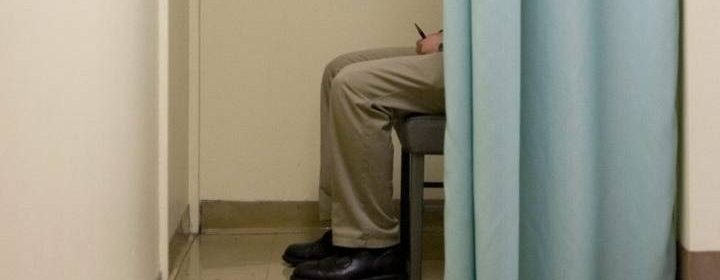Albertans waited 6.5 months for medically necessary treatment in 2018: report

From receiving a referral from a general practitioner to getting in to see a specialist and then to actual medical treatment, Albertans in need of various procedures and tests spent about 26.1 weeks waiting for them, according to an analysis by the Fraser Institute.
That accounts for just over 6.5 months of time.
The number is down slightly from what Bacchus Barua, the institute’s director of health policy studies, called a record high reported last year, which saw wait times average about 26.5 weeks.
Related
 ‘Hey Alexa’: Alberta Health Services to offer ER wait time estimates through Amazon’s Alexa
‘Hey Alexa’: Alberta Health Services to offer ER wait time estimates through Amazon’s Alexa
 Wait times for hip and knee procedures on the rise in Alberta
Wait times for hip and knee procedures on the rise in Alberta
 Nova Scotia aims to decrease lengthy mental-health wait times
Nova Scotia aims to decrease lengthy mental-health wait times
In comparison, patients in Saskatchewan waited an average of 15.4 weeks for treatments, according to the report. On the other side of the spectrum, patients in New Brunswick waited the longest — coming in at 45.1 weeks, or just over 11 months.
The average Canadian wait time in 2018 was 19.8 weeks.
The Fraser Institute’s study, led by Barua, looked at wait times for 12 different medical specialties, including orthopaedic surgery, diagnostic tests and medical oncology.
It also broke down the timelines for when patients get a referral from a family doctor to when they see a specialist, and then again from the specialist visit to receiving the medical treatment they need.
Watch below: ‘It just feels like they’re not listening’: Saskatchewan the only province without dedicated seizure unit
Albertans needing orthopaedic treatment waited the longest, with an average of 55.3 weeks — more than a year — on the list. For Alberta medical oncology patients, the wait was about 4.8 weeks.
From the referral from a family doctor to a visit with a specialist, patients across the country waited about 8.7 weeks, which is down from 10.2 in 2017.
From the specialist visit to the point where the patient receives their treatment, Canadians wait an average of another 11 weeks, which is an increase from 2017, when the average wait was 10.9 weeks.
“I think most policymakers — [and] physicians themselves — are reporting that their patients are still waiting longer than is clinically reasonable and I’m pretty sure that Albertan patients themselves would prefer more timely access to care if possible,” Barua said.
The wait times for diagnostic treatments are also lengthy, the report said, suggesting that Canadian patients could wait up to 4.3 weeks for a CT scan, 3.9 weeks for an ultrasound and as long as 10.6 weeks for an MRI.
“It is estimated that, across the 10 provinces, the total number of procedures for which people are waiting in 2018 is 1,082,541,” the report’s executive summary reads.
The report also said that according to doctors’ reports, patient requests for postponement or delay only account for about 12.2 per cent of those on the waiting lists.
The Fraser Institute has been measuring wait times for medical treatments since 1993, when Alberta’s average wait time was 10.5 weeks.
Watch below: Calgary medical staff looking for public’s ideas of 3D printing possibilities
“While there is a little bit of improvement given the record high that we saw last year, the trend is that wait times are actually increasing over the last two-and-a-half decades,” Barua said.
He added that Canadians wait significantly longer than those in other countries with universal health care, like Sweden, the Netherlands and Australia.
“This is a Canadian problem and unfortunately, the governments have generally followed a policy of putting more money into the system and no government has really tackled reform the way that other countries [have] through universal health care,” Barua said.
The report pointed out that in the Atlantic Canadian provinces, survey responses were lower than in other provinces, which could result in the average wait times being higher or lower than what’s been reported.
Methodology: The data for this issue of “Waiting Your Turn” were collected between Jan. 11 and May 15, 2018. Survey questionnaires were sent to practitioners in 12 medical specialties: plastic surgery, gynaecology, ophthalmology, otolaryngology, general surgery, neurosurgery, orthopaedic surgery, cardiovascular surgery, urology, internal medicine, radiation oncology and medical oncology. Deloitte Touche Tohmatsu Limited provided mailing lists, drawn from the Canadian Medical Association’s membership rolls. This year, the overall response rate was 17 per cent.
Source: Read Full Article




